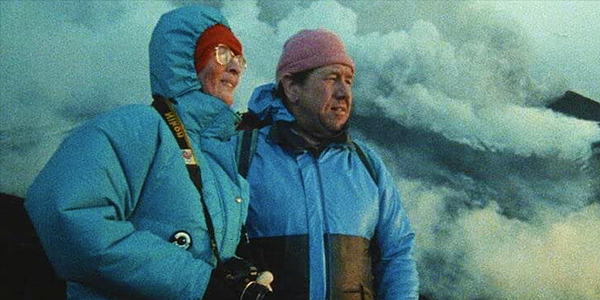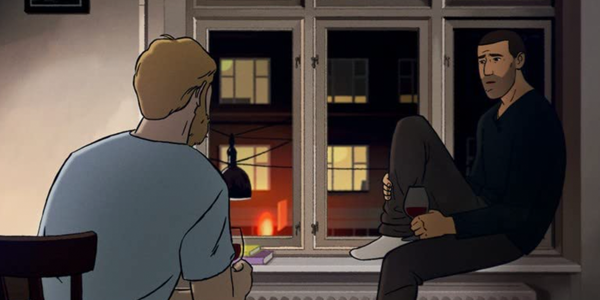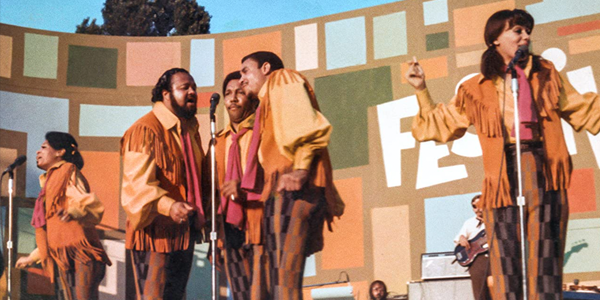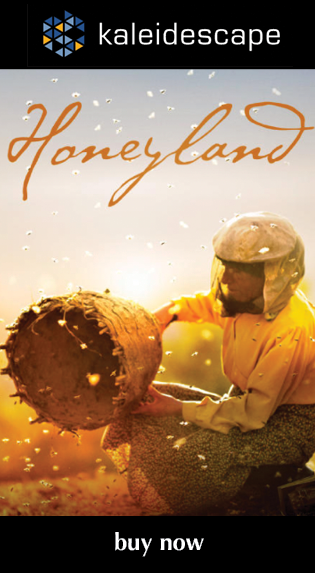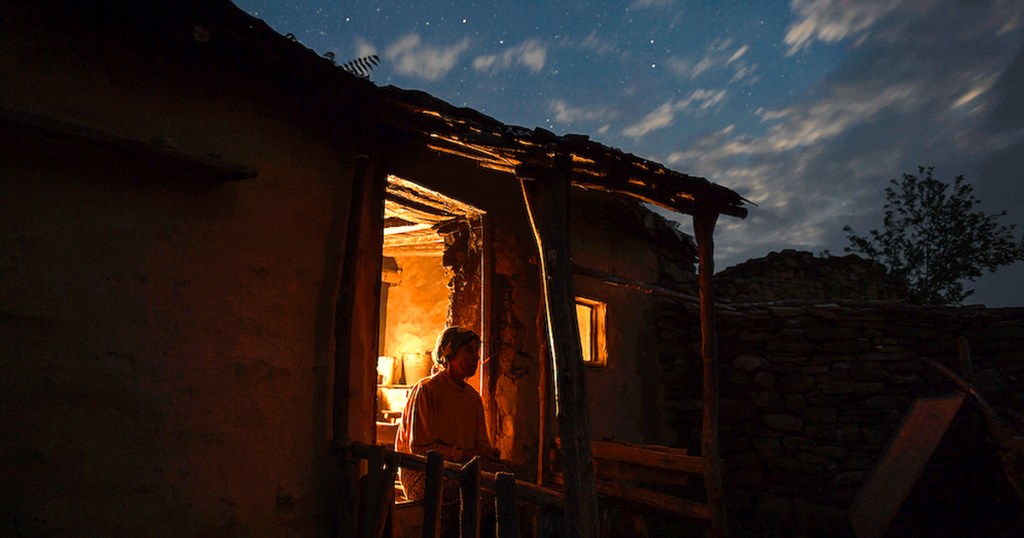
review | Honeyland
This Oscar-nominated documentary eschews most of the usual documentary conventions but is worth a look for the visuals alone
by Dennis Burger
updated July 31, 2023
Honeyland is unlike any documentary I’ve ever seen. There’s zero narration. None of the participants looks at or speaks to the camera. There’s no indication of where the story unfolds, except for a handful of references to Skopje, the northern Macedonian city that apparently isn’t too far from the little stretch of mountainous land where the bulk of the action takes place. What you do manage to pick up from the film will mostly be gathered from hard-won context clues. And in the end, I don’t think any of that really matters.
At its heart, Honeyland is a film about a middle-aged woman named Hatidze, a beekeeper who lives in harmony with nature and has a rule of always leaving the bees with exactly as much honey as she takes. “Half for me, half for you” she says as she harvests her hives. Soon after we meet her, though, her peaceful existence is disrupted by the arrival of nomads who drag their trailer into the plot of land next to hers with a pack of farm animals and an unruly pack of loathsome children. Hatidze does her best to teach the patriarch of this traveling brood how to harvest honey sustainably, to no avail.
If it sounds like a simple story told simply, that’s because it is. But the way in which it’s told—without context, without explanation, without larger connective tissue—makes it as intriguing as it is inscrutable. When you get right down to, the visuals are the star of the show. (Spoiler warning: In digging around for any info about the film after the credits rolled, I learned that the filmmakers edited purely visually, ignoring their audio recordings until the final cut was locked down. And it shows.)
To get a sense of what I mean, watch the film’s trailer—perhaps the most honest and representative teaser I’ve ever seen. It’s a one-hundred-percent faithful condensation of everything this film is. Imagine another 87 minutes of exactly this, and you’ll have a pretty good indication of exactly what unfolds on the screen and how.
While limited to HD resolution even via Kaleidescape, Honeyland still exhibits more detail, crisper edges, and a richer overall look than you’ll find in most films shot and released in UHD. From the craggy terrain in and around Bekirlija to the dim and dingy interior of the hut Hatidze shares with her dying mother, every location is rendered stunningly, and every frame is a printable work of art.
And despite being of no concern to the filmmakers while editing, the DTS-HD Master Audio 5.1 soundtrack brings the environment to life almost holographically. Every gust of wind through every sparse patch of grass, every flickering flame, and every stirring swarm of bees is delivered as if they’re emanating from the air rather than speakers in a room.
But, for as masterfully shot and edited as it is, I found much of Honeyland difficult to watch, and I’m not sure I’ll be returning to it any time soon—though part of me wants to, now that I have a better understanding of what’s going on. What keeps me from pressing Play again mostly boils down to several scenes involving child abuse (primarily verbal, but certainly with threats of the physical) and animal cruelty, which genuinely upset me to the point of near physical illness. So, if you’re squeamish about such things, perhaps it’s best that you take a pass.
If you can get past that, though, Honeyland is just such an unabashedly weird film that it’s worth at least one viewing. It’s a stark reminder of the importance of sustainability. But that message isn’t delivered preachily. In fact, the film is just as stark a reminder that sustainability is, at times, something of a luxury, especially to those for whom scorched-earth capitalism represents the ever-elusive but tantalizing promise of an escape from abject poverty.
If that gives you the impression that Honeyland is something of a Sisyphean tale, I can’t really argue with that. But it is a beautifully made documentary in the purest sense of the word, and its numerous critical accolades aren’t unwarranted.
Dennis Burger is an avid Star Wars scholar, Tolkien fanatic, and Corvette enthusiast who somehow also manages to find time for technological passions including high-end audio, home automation, and video gaming. He lives in the armpit of Alabama with his wife Bethany and their four-legged child Bruno, a 75-pound American Staffordshire Terrier who thinks he’s a Pomeranian.
© 2025 Cineluxe LLC


